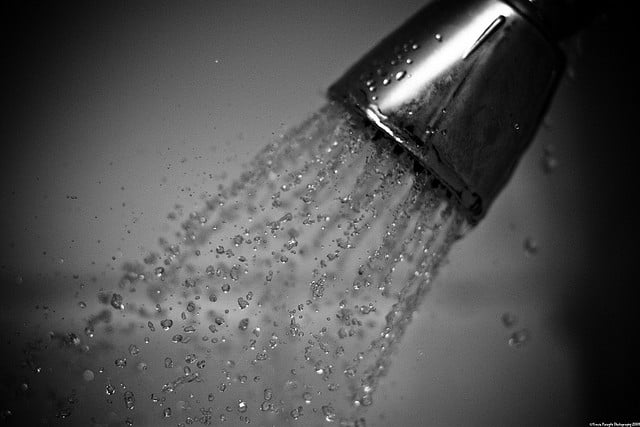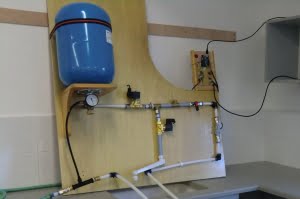Fortunately, this past winter has brought with it a large quantities of rain to Israel. But another phenomenon that is typical of the Israeli winter is wasting much of that precious water: Letting the water in the shower run for minutes until it turns warm.
The typical Israeli household housing four to five individuals consumes a yearly amount of around 110 cubic-meters of water per person, according to reports. When you do the math, the average amount of water wasted until it reaches the proper temperature is eight liters a day, or three cubic meters a year. When adding these numbers up, we find that roughly 37 million cubic meters are wasted yearly, especially in the winter season, when people wait up to twice as long for hot water.
Related articles
- TaKaDu: Using The Power Of Maths To Solve The World’s Water Leaks
- The Israeli Farmer Who Changed World Agriculture
A new system, called “Has-Ham,” developed by students Yossi Taplitzky, Ofer Zakun and Guy Almagor, under the guidance of Dr. Shimon Leinkin and Dr. Irit Avrahami from the Department of Mechanical Engineering & Mechatronics at Ariel University, was designed to reduce water waste by conserving fresh water and rerouting it back for domestic use. The system, which is installed in showers, collects the cold water that runs while people are waiting for it to get warmer.
Letting the temperature control the flow
The system stores the water until hot water reaches the shower head and only then directs it for the consumer’s use. At the same time, the water is pumped out of the storage tank and is ready for re-use. The “Has-Ham” utilizes temperature sensors which control the flow of water into the taps. In essence, the system recognizes the cold water running through the pipes and makes sure that instead of flowing out of the faucet, it is directed to the storage tanks to be re-used later.
The students working on the project explained: “In Israel, like in many other countries, there’s a water shortage. This shortage is due to climate, population growth, a greater need [for water] and dwindling water sources. In light of these facts, we are obligated to conserve as much water as possible.” The students say that, as far as they know, there is no other system that stores fresh water for re-use.
The students add that “the goals we set for ourselves were that the water conservation system would not use too much electricity, that stored water would be used as fresh water and not ‘grey-water,’ that the system be user-friendly and that it recognize the proper water temperature before rerouting the water back to the user.”
…
To read this article in Hebrew, click here.
Via NRG
Photo by AloneAlbatross
Related posts

Resilient And Nutritious New Plant-Based Milk Aims To Make A Splash

Chocolate From Cultivated Cocoa Comes Without Environmental Toll

Plastic Fantastic: Startup Takes PVC Back To Its Crude Oil Roots





Facebook comments